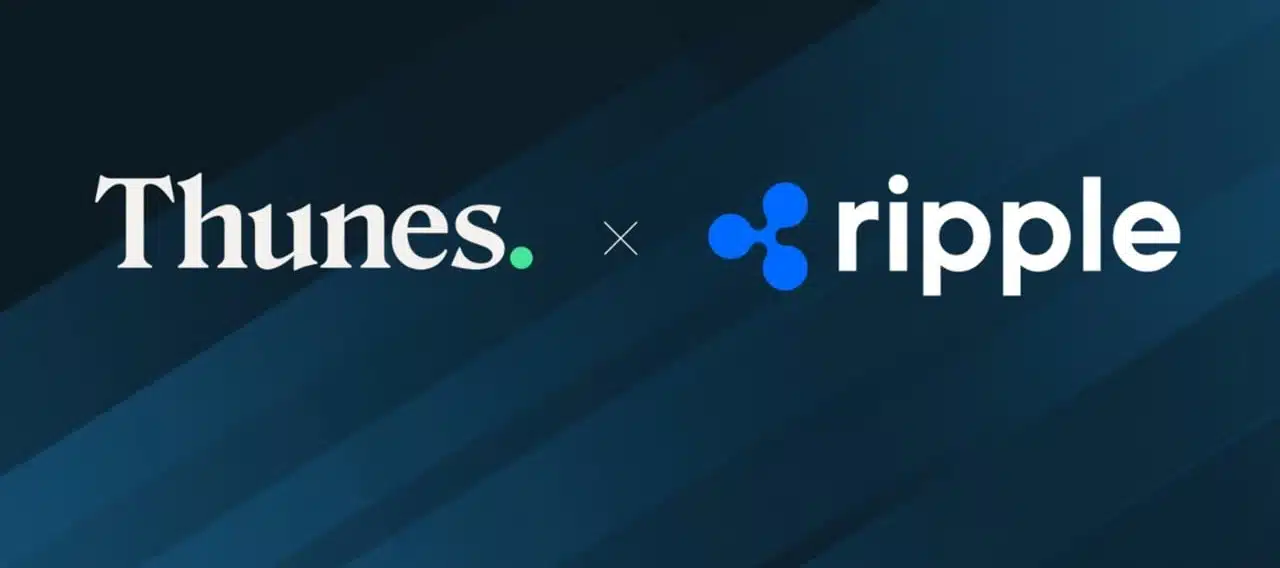- Ripple’s partnership with Thunes challenges SWIFT’s global payment dominance.
- XRP Ledger offers faster, cheaper cross-border settlements with Thunes.
- Ripple disrupts traditional payment systems, targeting real-time global transactions.
Ripple’s new partnership with Thunes has sent shockwaves through the financial world. According to industry expert Diana (@InvestWithD), this strategic move could drastically challenge SWIFT’s dominance in the cross-border payments market.
Ripple has now joined Thunes, a universal payment platform with presence in more than 130 countries and access to more than 80 currencies, which makes it a powerful force in global monetary transfers.
Thunes’ integration with the Ripple XRP Ledger (XRPL) positions the company to launch faster and more efficient payment settlement solutions that will compete directly with SWIFT.
The partnership will enable Ripple to access the widespread network of Thunes that already processes billions of mobile wallet transactions and supports transactions of over 3 billion people around the world. Another distinction is that, unlike SWIFT, which is mainly concerned with messaging, Ripple and Thunes are going a step further and incorporating settlement features.
This implies that transactions across borders that usually take days to accomplish using a conventional banking system could now be done within seconds.
Pundits are heralding the partnership as a direct blow from Ripple to SWIFT, which has long dominated world messaging and payment systems. Ripple is offering a much-needed alternative: faster, cheaper, and more transparent money transfers around the world through XRPL.
Financial institutions, banks, and fintech companies can use the new Ripple-Thunes alliance to deliver local currencies instantly, avoiding the out-of-date systems that SWIFT uses.
Also Read: BlackRock and Ripple Same Company? Pundit Outlines 6 ‘Secrets’ to Prove Claim
Ripple’s Disruption of Traditional Financial Networks
Thunes has become a critical player in the global payments ecosystem, powering remittances, e-commerce, and aid flows. By linking Thunes with Ripple’s blockchain technology, the partnership enables instant settlements that could redefine the way money moves across borders.
The resulting partnership opens up a new dimension of efficiency, enabling Ripple to access the already established network of mobile wallets and bank accounts all over the world and provide its users with a smooth experience in 130 countries.
Moreover, the partnership presents XRP as a bridge asset by Ripple that helps move liquidity across currencies. The XRP token will also be crucial in enhancing liquidity and transaction cost savings, especially in corridors that previously featured traditional systems such as SWIFT.
In addition, Ripple’s emphasis on compliance with proof-of-reserves, full audits, and local KYC flows would provide it with an advantage over SWIFT, which has been facing regulatory issues.
The Road Ahead: A Shift in Global Payments
Diana noted that the Ripple-Thunes alliance is not just about remittances but about transforming the entire financial infrastructure, enabling businesses, governments, and consumers to settle payments in real time, 24/7.
The more Ripple introduces its XRP Ledger to the world of payment systems, the more appealing it becomes to customers who want a faster, more reliable way to make payments.
Ripple has made more than a partnership this time around; it is a statement in the battle to displace the legacy financial networks, according to commentator Diana. With Thunes’ global reach and Ripple’s blockchain technology, the duo is setting the stage for a significant shift in how money flows across the world.
Also Read: Keep These XRP Targets in Mind’: Top Analysts Point Out Key Short-Term Breakout Levels to Watch

